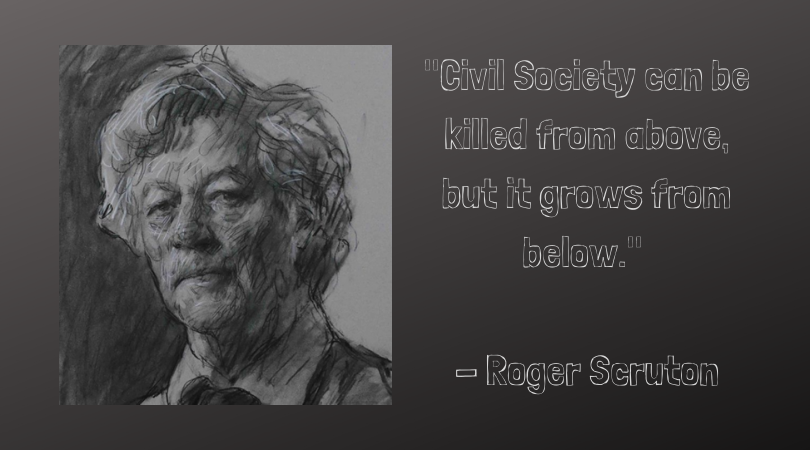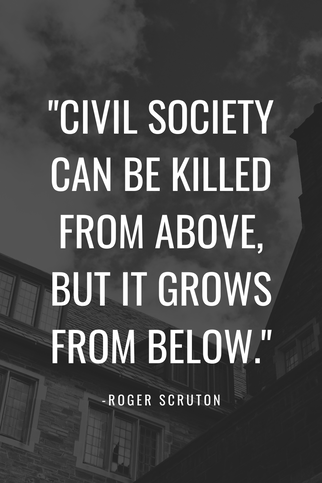Scruton was a one of a kind iconoclastic thinker. Though a Burkean and a Traditionalist, he frequently wrote about bohemian subjects like art, sex and drinking. Courageous, funny, humble, and a tireless advocate for "the true, the good and the beautiful," the world lost something very special when he died of cancer January 12 of this year.
The Making of a Public Philosopher
Scruton describes a scene from 1968, which shaped his overarching philosophical views from then on. While visiting his girlfriend in Paris, he watched student strikers, known as the soixante-huitards or 68ers, overturn cars, topple lampposts and rip up cobblestones. For seven weeks civil unrest continued, paralyzing France. “I knew I wanted to conserve things rather than pull them down,” he observed years after the experience.
The rallying cry of the French 68ers was “It’s forbidden to forbid.” While the 68ers ushered in a more liberal social era, there is good reason to question some of their more radical views, like those on the sexual liberation of children for example. French culture became more accepting of such practices on account of the the 68 generation; only now is that beginning to change. I was unhappy to learn that French philosophers such as Foucault, Sartre, and Simone De Beauvoir spoke in defense of the practice of adults engaging in sex with people below the age of consent in France, which is 15.
Scruton found himself part of the 68 counter-movement in the 1970s. Many of his views where at odds with those of his colleagues, and he ultimately left the academy, going on to pursue public philosophy and to publish more than 50 books over the course of his life.
Risking Torture for Plato and Aristotle
Scruton describes one such trip, entering into an apartment building in the 1980s, to attend a clandestine gathering of pupils eager to discuss Plato and Aristotle. Such secrecy was necessary because the Communist governments of Poland, Hungary and Czechoslovakia and so forth had banned private charity and all forms of civil association. [1]
"The work of the secret police was to control and if possible prevent free association, so that society would be completely atomized by suspicion and fear," Scruton states. [2]
He continues, "The truth in conservatism is that civil society can be killed from above, but it grows from below. It grows through the associative impulse of human beings who create [voluntary] civil associations."
Scruton observed that free association which cannot be controlled by the state is so important because it gives meaning to the life of the individual. "Opportunities are enhanced not by closing things down but by opening things up...and protecting the space in which free association and civic organization can flourish." [3]
If you've not read any of Scruton's books, there are many excellent ones to choose from, on topics as diverse as sexuality, drinking, political philosophy and aesthetics/beauty. Hundreds of his lectures and debates are also available on YouTube.
Scruton was diagnosed with cancer in 2019, and passed away in January 2020 at 75.
“Coming close to death,” Scruton wrote in December, “you begin to know what life means, and what it means is gratitude.”
~
*Image credit INSTAGRAM/MAUTAKIGUTHI
Sources:
1. Scruton, Roger. How to Be a Conservative. Bloomsbury, London: 2014.
2. Ibid.
3. Ibid.
Read Next:
The 10 Best Philosophy Books for Beginners
Are You A Disordered Philosopher?
Stop Doing This if You Want to Be Happy











